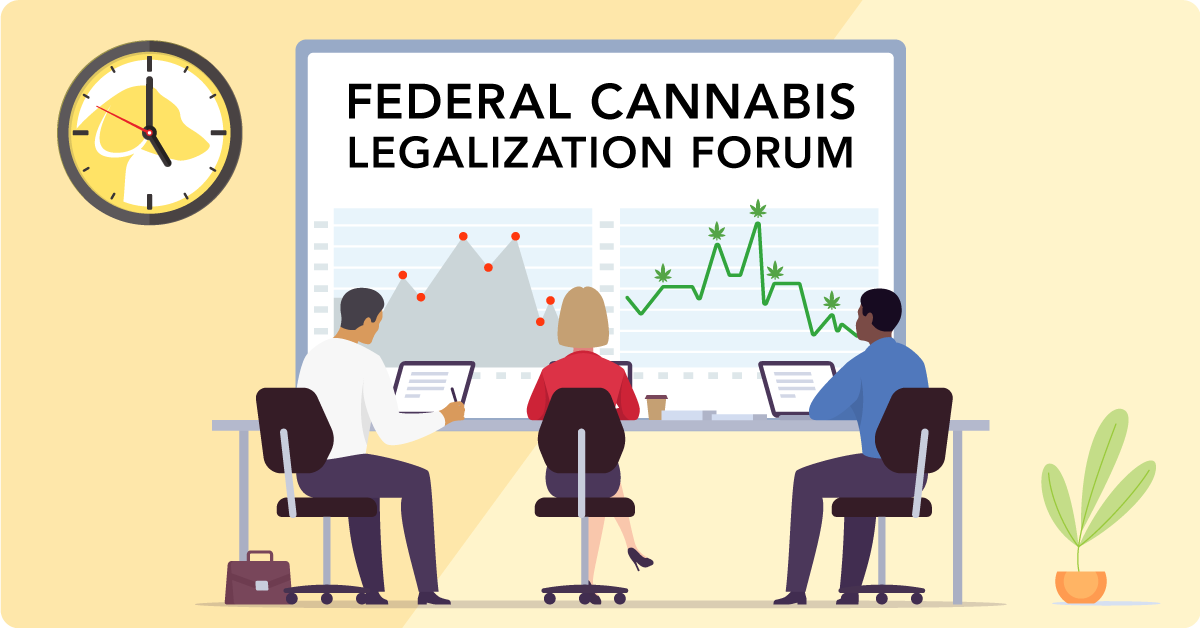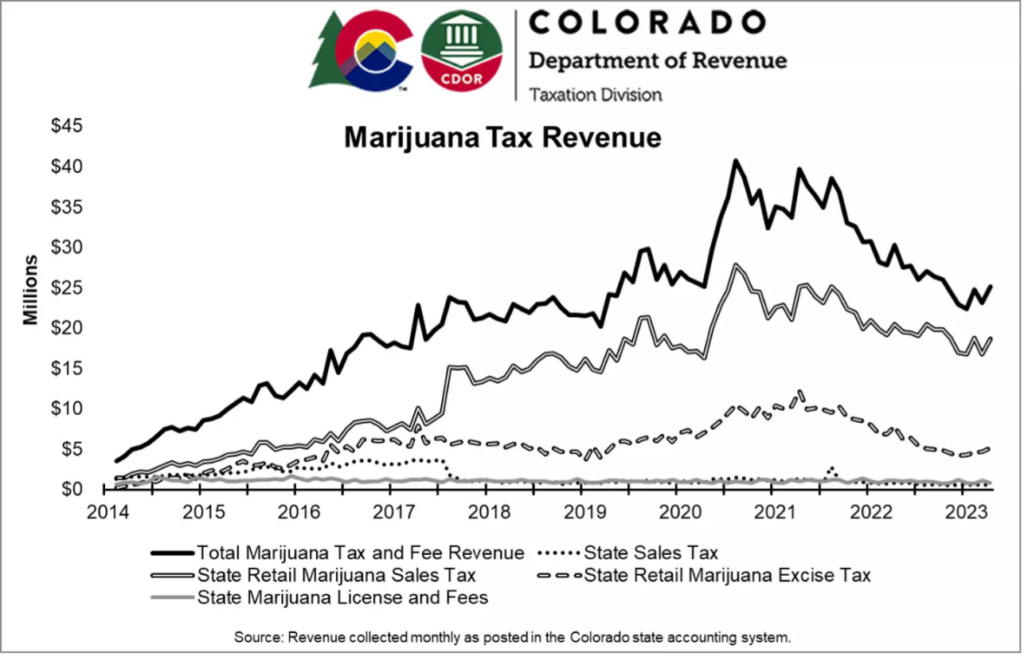
Thoughts on the Journey to Federal Cannabis Legalization
As the Senior Manager of Legal Affairs at Hound Labs, I get an interesting mix of questions about what cannabis laws mean, when they’re likely to be enacted at the federal level, and what employers should consider as they modernize their workplace drug testing policies. As a lawyer, I understand the complexities of legalization, particularly when it comes to federal preemption – the constitutional principle that basically says federal law trumps state law. And as both a company legal counsel and a practicing attorney, I’m constantly asked what I think the journey to federal cannabis legalization will look like and when it will finally happen.
Sure, there are countless articles, videos, political talking points, and headlines about what’s being done. But I’m careful not to regurgitate information that may not be wholly accurate or fails to paint the full picture. Moreover, Hound Labs does not take a stance on cannabis legalization at the state or federal level. My role is to help educate and advocate for the common goals shared by employers, employees, unions, and legislators in the era of cannabis legalization – balancing workplace safety with employee fairness and privacy.
Hearing firsthand from the people responsible for making laws at the federal level is exactly the reason I was excited to attend the National Cannabis Policy Summit’s Congressional Forum1 at the Capitol in Washington, D.C. held in April. I attended eager to hear those in positions of power share directly what they’re thinking and doing as it relates to cannabis in the United States.
Here are my key takeaways.
THE ROAD TO FEDERAL CANNABIS LEGALIZATION
The first session, titled “The New Generation of Conservative Lawmakers for Cannabis Reform,” was one of the most interesting of the day because it involved two speakers from an unlikely political party. Representatives Brian Mast (R-FL) and Nancy Mace (R-SC) discussed what they view as the necessary road ahead for federal cannabis legalization.
Many people associate cannabis legalization with more liberal-leaning cities and states. And looking at the legalization map gives good reason to support this line of thought.

Representatives Mast and Mace, however, buck this trend and have committed to vocally supporting a federal cannabis legislative overhaul, albeit for different reasons. Representative Mace discussed banking and the opportunity for cannabis-related businesses to invest their money in banks, presenting benefits both to small businesses and the Federal Deposit Insurance Corporation (FDIC). 2 She described this as an “easy win,” saying conversations with her constituents point to most people in red states being “ready to go,” despite assumptions otherwise.
Representative Mast, an Army veteran who suffered catastrophic injuries causing a double leg amputation, discussed the Veterans Equal Access Act.3 A self-proclaimed “states’ rights guy,” he shared stories of friends and other veterans who also suffered and found peace when they began to use medicinal marijuana. He pointed out that many veterans with lifelong injuries and pain have ended up addicted to prescription drugs, so medical marijuana presents a potentially preferable alternative to highly addictive painkillers.
PREPARING FOR FEDERAL CANNABIS LEGALIZATION
Another session, titled “How Can the Federal Government Prepare for Reform,” featured Representative David Joyce (R-OH) and Senator John Hickenlooper (D-CO). Their discussion centered on the Marijuana Opportunity Reinvestment and Expungement Act, commonly referred to as the MORE Act,4 which if passed, would repeal the federal prohibition and criminalization of cannabis.
Representative Joyce explained that if the MORE Act passed tomorrow, the federal government would have no idea how to handle it. His comments highlighted the need for the government to think about federal cannabis legalization from every angle so that they are ready if and when this bill, or something similar, passes. He mentioned that he had seen more movement of late on cannabis-related issues than on any other topic.
Senator Hickenlooper also discussed the MORE Act but linked the bill to interesting anecdotes about the aftermath of cannabis legalization in his home state of Colorado. Since legalization, he said sales are in the billions of dollars, resulting in hundreds of millions of dollars in tax revenue. For context, tax revenue comes from the state sales tax (2.9%) on marijuana sold in stores, the state retail marijuana sales tax (15%), and the state retail marijuana excise tax (15%).5 To date, Colorado has generated nearly $2.5 billion in total tax revenue since starting collections in early 2014.6

Hickenlooper also mentioned Colorado completed a Healthy Kids Survey7 in 2022, which indicated no increase in cannabis consumption among children since the state legalized marijuana.8 Armed with this experience, he is working on an act called the Preparing Regulators Effectively for a Post-Prohibition Adult Use Regulated Environment Act, or the PREPARE Act,9 and is leaving “no stone unturned.” In his view, keeping marijuana illegal is just bad policy.
FEDERAL CANNABIS LEGALIZATION FRUSTRATIONS
Finally, two highly anticipated and impassioned speakers shared their frustrations with the federal government’s slow adoption of cannabis legalization.
Representative Earl Blumenauer (D-OR) spoke about impairment. “Because of this bizarre prohibition on cannabis research, we’ve had to outsource this to Canada or Israel, and we have not developed a good test for impairment.”
At Hound Labs, we know the line between workforce cannabis testing and impairment is blurry at best, but we also recognize some legislators and employers have been led to believe the purpose of cannabis testing is to detect impairment, which it is not. Implementing policies around impairment may cause legislators and employers to lose sight of the primary goal of workplace drug testing – detecting and deterring workday use.
While focusing on impairment doesn’t provide enough relevant data for workplace drug testing, Blumenauer did highlight the need to remove an unfair barrier to employment and provide appropriate workplace protections for recreational and medical marijuana users.
He continued, “In any given week there are tens of thousands of Americans who are disqualified with a pre-employment drug test. What would the impact be if we had the same stringent standards for alcohol? That somebody who had a beer last week or last month [was] being denied access to employment? I think we’re going to finally turn the corner on that, and it’s going to have very profound consequences [related to increasing momentum on reform].”
His remarks were followed by a name synonymous with the push for federal legalization, Senate Majority Leader Chuck Schumer (D-NY). Schumer explained his optimism with “a promise to keep fighting until federal cannabis reform is the law of the land. I believe deep in my bones that we will get there one day soon because there is no stopping this movement. When social activists and entrepreneurs and veterans’ groups and conservatives and liberals are all able to come together on one issue, it’s a sure sign the momentum is real.”
Schumer also discussed the Cannabis Administration and Opportunity Act10 that he introduced alongside Senator Cory Booker (D-NJ) and Senator Ron Wyden (D-OR) “so we can finally remove marijuana from the federal list of controlled substances, so we can expunge the criminal records of so many Americans with low-level marijuana offenses, so we can once and for all close the book on the awful, failed, destructive war on drugs, which really was nothing more than a war on people, especially people of color.” Schumer didn’t mince words, explaining that this is about individual freedom and basic fairness in his view, and reiterated his commitment to being a champion for change.
FEDERAL CANNABIS LEGALIZATION TAKEAWAYS
While I left the summit with no concrete answers – I still don’t know when federal cannabis legalization will happen, when the FDIC will allow these businesses to begin banking, or when marijuana will be classified differently on the list of controlled substances – I did walk away with an understanding that the train has left the station and there’s no turning back. That’s why now is the time to modernize workplace drug testing policies. We know change it’s coming; it’s really just a matter of when.
Footnotes
1 National Cannabis Policy Summit
2 FDIC
3 Congress.gov
4 Congress.gov
5 Colorado.gov
6 IBID
7 Colorado.gov
8 IBID
9 Hickenlooper.senate.gov
10 Senate.gov
11 National Cannabis Policy Summit

May 25, 2023
By JESSICA COHEN TAUBMAN
Share












